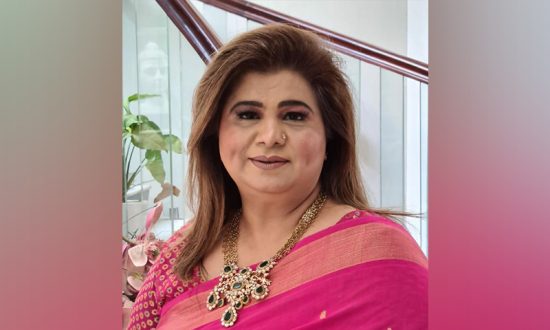Alka Kapur, (CBSE & State Awardee) Principal, Modern Public School, Shalimar Bagh, Delhi is an empowering leader, a zealous educationist with rich academic and administrative experience offering an illustrious career of 32 years in educational research. As the Principal of the school, she has taken the school to great heights through open attitude for learning and love for children. Twenty years of her sedulous selfless service as the principal of the school has accorded the school a priceless status in Forbes India Marquee Edition, The Great Indian Schools.
As we stand on the cusp of much-awaited ‘new normal’ after delivering 100 crore vaccine doses, we can finally start reopening the schools and help the students get back to track on their educational journey. While we were cooped up in the safety of our homes, the pandemic has changed a lot in terms of how the world works and the Indian education system is no different. Besides the implementation of the New Education Policy, we’re now hearing a lot about the need for counselors in schools.
But why are we talking about it now?
Well, there are several reasons that we need to unpack.
First and foremost, amid the pandemic, several events have occurred that have attracted outrage and made people think deeply – one of those hot topics of discussion these days is mental health. Living in isolation – often away from friends and family – we have come to realize the importance of mental health and how deeply it affects us. Much like adults, children too struggle with mental issues often, and if left undiagnosed, they could lead to serious and often undesirable outcomes.
Why do we need counseling in schools?
Mental health and educational outcomes are directly linked to each other. Since the students spend most of their active hours in school, it gives schools the power to enhance the nature and scope of mental health interventions, fill the gaps, enhance effectiveness, address problems early, and reduce stigma around mental illnesses. Much like any of our body parts, our nervous system can malfunction too at times, and there should be no shame in seeking out professional help. By having a qualified counselor in the school premises, we can address such issues with haste and nip the problem in the bud.
According to a report by the Associated Chambers of Commerce and Industry of India (ASSOCHAM), 3% of private schools have a counselor onboard – which is alarming. Thankfully though, mental health awareness campaigns are doing a good job at educating the public regarding the importance of counseling and many more schools are appointing full-time counselors to help the students.
As important as the school environment is, it can often be stressful. Sometimes the parents are also expecting too much from their children, which often adds to the problem. Every student is unique in his/her way. Some are good in academics; some are good in sports while some are great artists. However, the society that we live in often makes them conform to boxes that they may not find comfortable. Oftentimes they try to voice their concern but find out that no one is there to listen to them. This is where the role of a counselor becomes very important.
The high-paced lifestyle, medical conditions, abundance of gadgets and screentime, and nuclear family are some factors that have created a vacuum in children’s lives, and they need someone to confide in.
This is a role that a counselor can play. A counselor can take on the role of an adult who understands their feeling without judging them and is willing to listen to their problems without sounding condescending or intimidating.
It must be noted that children, especially those going through puberty are extremely vulnerable mentally and the parents/guardians need to tread with caution while listening to their children’s problems. Creating an atmosphere of understanding and openness is key if you want your child to be mentally fit and healthy.
According to experts, psychological problems such as gadget addiction, insomnia, suicide attempts, depression, anxiety, gaming addiction, substance abuse, relationship problems, conflict with parents, learning and behavioral problems are on the rise. Therefore, having counselors at school isn’t an option anymore; it is a necessity. Offering mental health services in school makes it easy for students to access help, and they can avail help in an environment that they find safe and comfortable.
Not only that, but counselors can also have discussions with parents and help them recognize the severity of children’s problems. Oftentimes in families where both parents are working, they could be completely unaware of what their child might be mentally dealing with.
What do the counselors do?
Contrary to what many people believe, counselors are not mentors. They don’t spoon-feed the students. Instead, they listen to the students’ problems and offer various perspectives that the child might not have considered before falling into despair. It gives children room to learn and grow.
Psychologists stress the need to prioritize the needs of our kids as mere human beings first; we need to look at the students as human beings, who struggle daily with emotions, insecurities, and anxieties. The best way to help them is by having qualified counselors on-premises who can understand their problems and help them arrive at a rational conclusion. This would not only help the students stay mentally healthy in their school years, but it will also equip them with the tools to deal with problems in the future.




